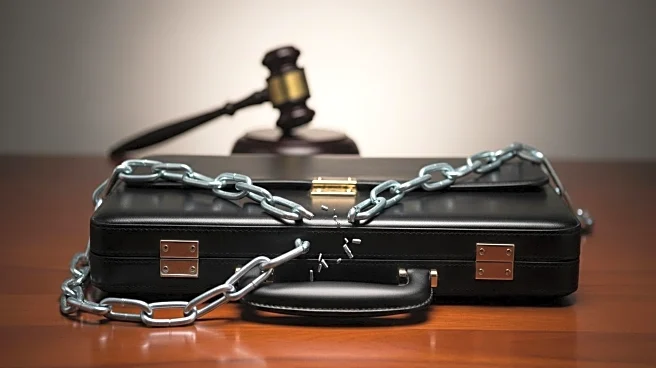What is the story about?
What's Happening?
Damon Dash, co-founder of Roc-A-Fella Records, has filed for bankruptcy in Florida, claiming he has less than $5,000 to his name. This move is seen as an attempt to avoid paying nearly $5 million owed in civil lawsuits. Lawyer Chris Brown, representing creditors, argues that Dash's bankruptcy filing is futile because most of the debts, particularly those from civil lawsuits, are not dischargeable through bankruptcy. Brown highlights that intentional torts like defamation are not dischargeable, referencing similar attempts by Rudy Giuliani to evade judgments. Dash's filing reportedly contains errors and omissions, such as listing a UPS store as his home address and failing to include significant assets like his life rights.
Why It's Important?
The bankruptcy filing by Damon Dash is significant as it highlights the challenges faced by individuals attempting to use bankruptcy as a shield against civil lawsuit claims. The case underscores the legal complexities surrounding bankruptcy and the dischargeability of certain debts, particularly those arising from intentional torts. This situation could impact Dash's financial future and his ability to manage existing legal obligations. It also serves as a cautionary tale for others in similar positions, emphasizing the importance of accurate and complete financial disclosures in legal proceedings.
What's Next?
The next steps involve a ruling from a Florida judge on whether Dash's bankruptcy filing will affect the enforcement of judgments against him. Dash's attorney has indicated that attempts to enforce judgments are currently stayed pending this decision. The outcome could influence Dash's legal strategy and financial management moving forward. Additionally, Dash's history of delay tactics in civil litigation may continue to play a role in how these proceedings unfold.
Beyond the Headlines
Beyond the immediate legal and financial implications, Dash's bankruptcy filing raises broader questions about accountability and transparency in financial disclosures. The case may prompt discussions on the ethical responsibilities of individuals facing significant legal claims and the role of bankruptcy courts in adjudicating such matters. It also highlights the cultural and societal impact of high-profile figures navigating legal challenges.















